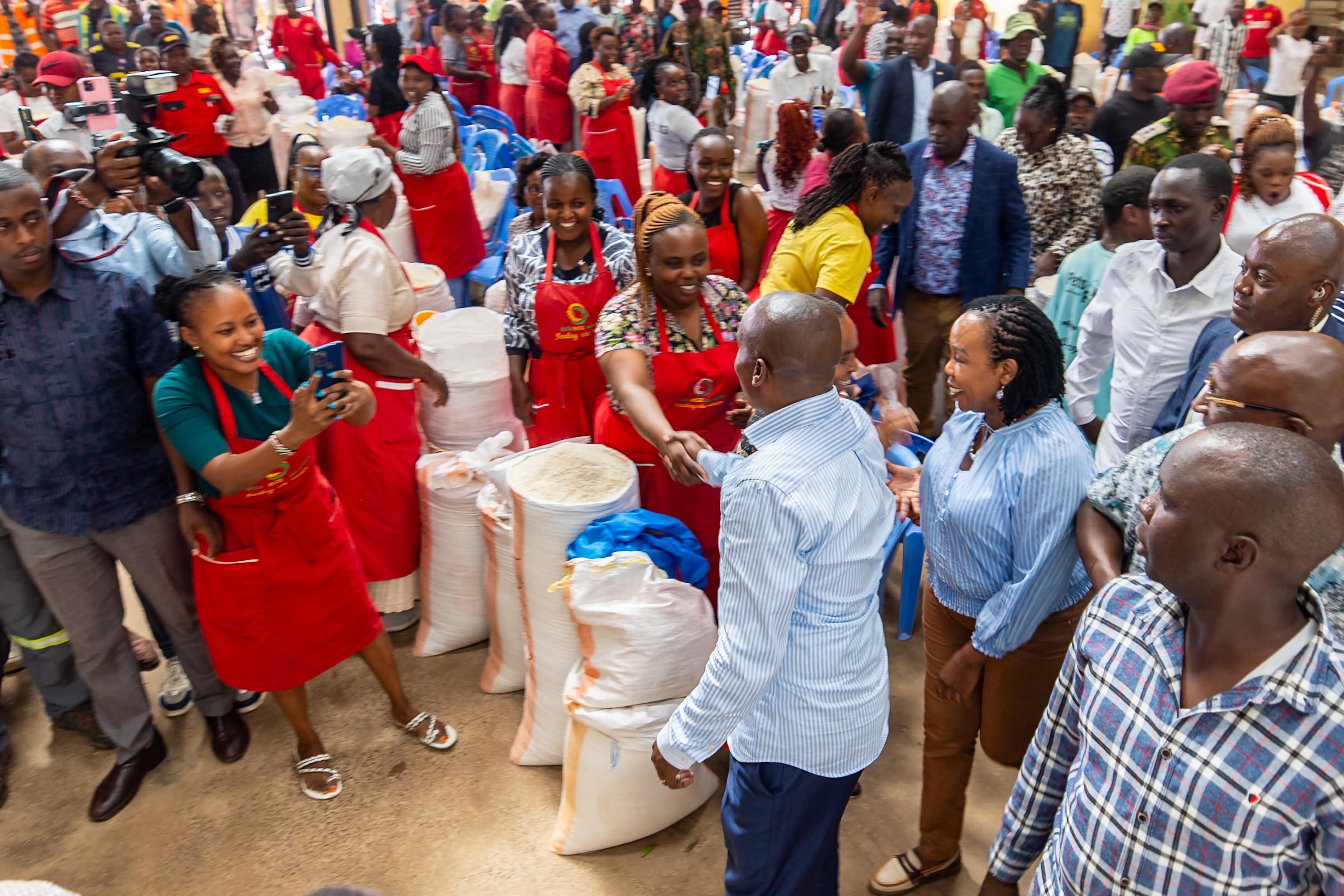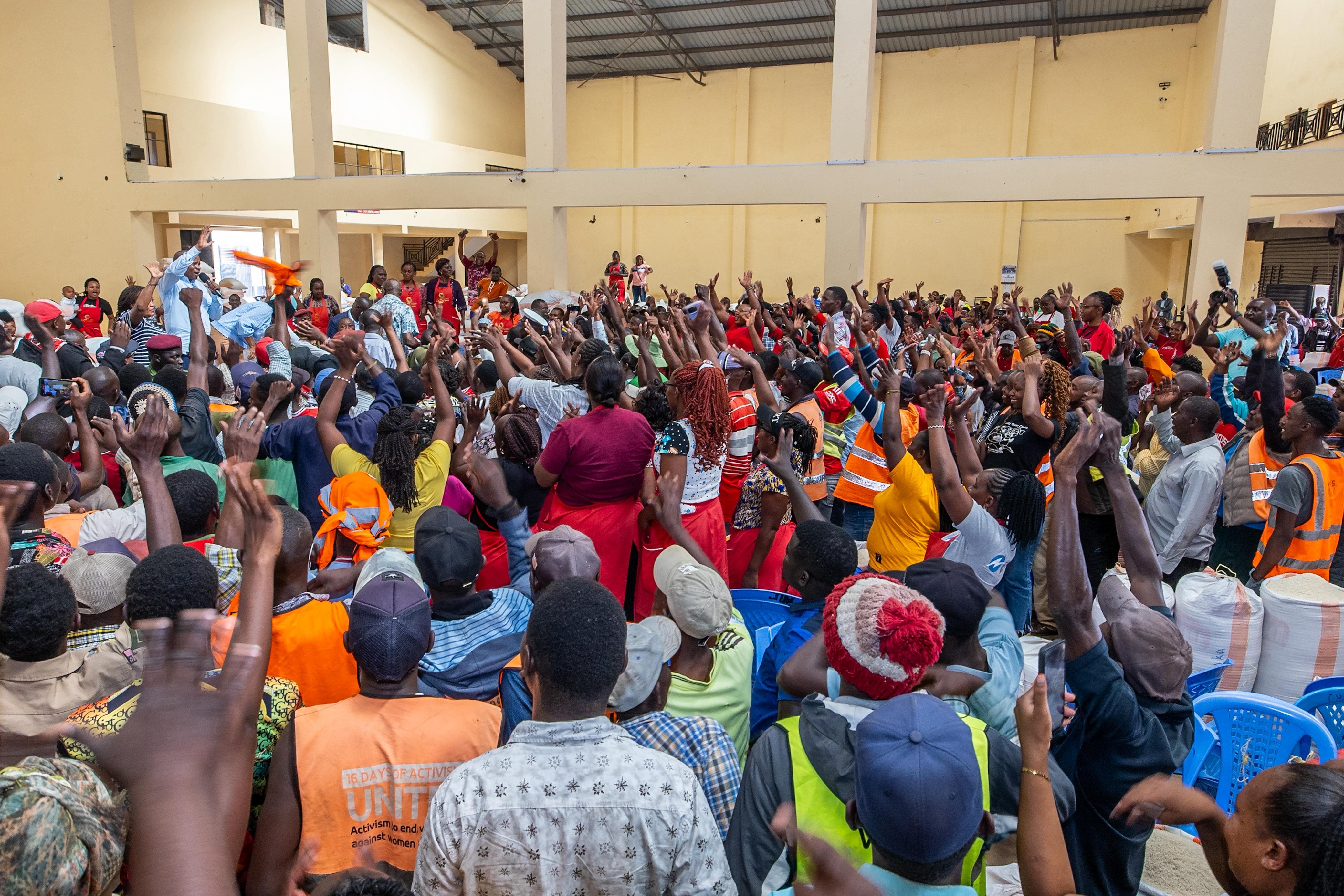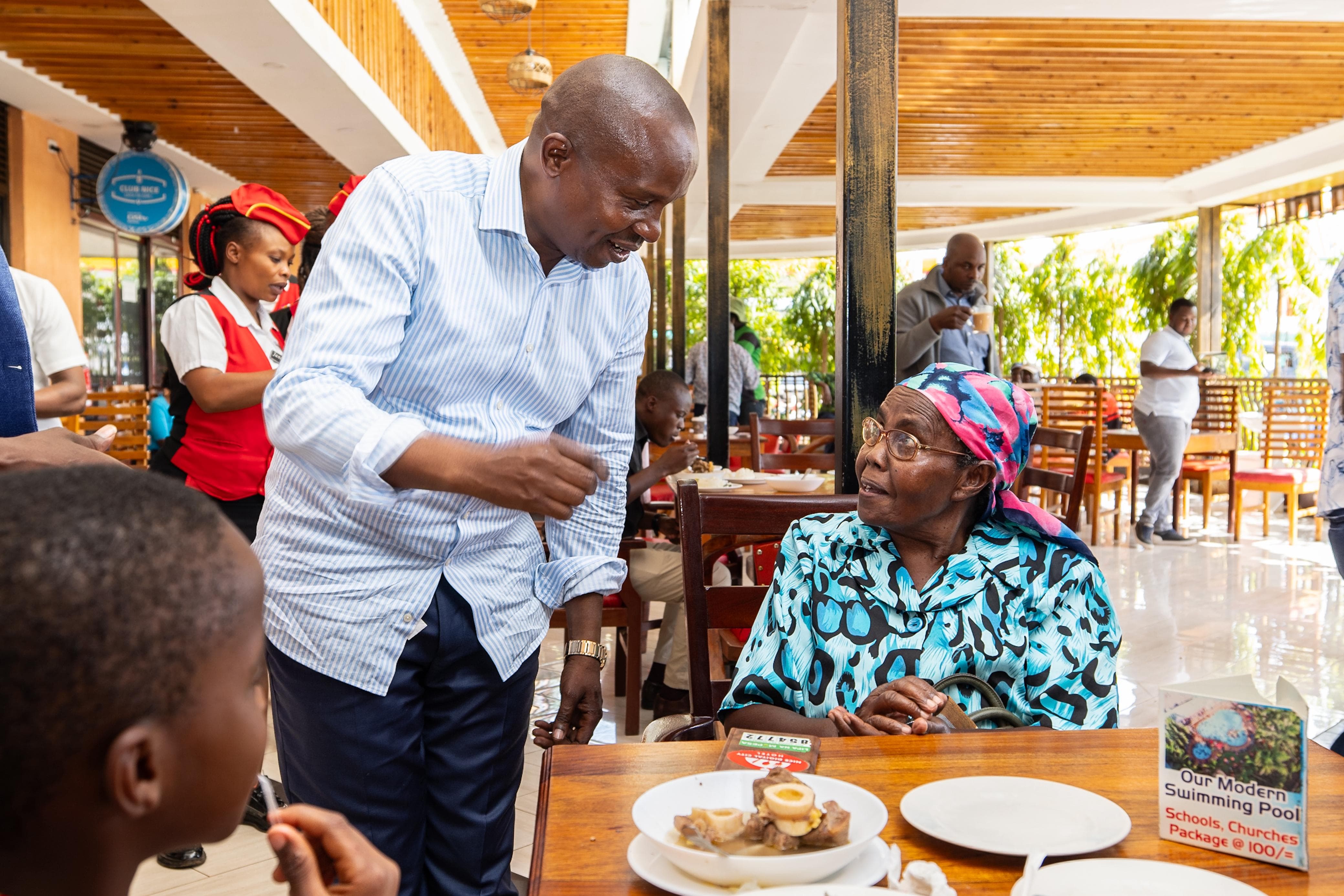
 Deputy President Kithure Kindiki during his visit to the Mwea Rice Millers in Kirinyaga county on Wednesday afternoon, June 4, 2025. /DPCS
Deputy President Kithure Kindiki during his visit to the Mwea Rice Millers in Kirinyaga county on Wednesday afternoon, June 4, 2025. /DPCS
Farmers in Mwea got a reassuring message from Deputy President Kithure Kindiki during his visit to the Mwea Rice Millers in Kirinyaga county on Wednesday afternoon.
As he addressed the gathering, Kindiki made it clear that the government had taken steps to protect local growers by prioritising the purchase of their rice before looking at options from beyond Kenya’s borders.
"Among the issues you have raised is the need for us to buy your rice; last week the people from the Kenya National Trading Corporation came here and have started the program to buy the rice so that the farmers do not experience losses," the Deputy President said.
For farmers who have long struggled with unstable prices and limited markets, the assurance came as a welcome gesture. Kindiki explained that government institutions—including the military and the National Youth Service—would be required to source rice locally as part of a new policy aimed at supporting homegrown produce.
He also touched on broader government efforts to improve key agricultural sectors, saying the Kenya Kwanza Administration is focused on strengthening areas such as coffee, tea, milk, and rice—crops that sustain thousands of livelihoods and contribute to the national economy.
"We appreciate the effort you put in doing your businesses, eking a living and taking care of your families. We will continue to support you," he told the farmers.
Many in the crowd welcomed the Deputy President’s remarks with cautious optimism, hopeful that the pledges will translate into steady markets and fair returns for their hard work.
 Deputy President Kithure Kindiki during his visit to the Mwea Rice Millers in Kirinyaga county on Wednesday afternoon, June 4, 2025. /DPCS
Deputy President Kithure Kindiki during his visit to the Mwea Rice Millers in Kirinyaga county on Wednesday afternoon, June 4, 2025. /DPCS
Rice is Kenya’s third most important staple food after maize and wheat.
It is grown under both irrigated and rain-fed systems, but more than 80 per cent of the national production comes from irrigation schemes, the largest being the Mwea Irrigation Scheme in Kirinyaga county.
Kenya’s rice consumption is growing rapidly at an annual rate of about 12 per cent, largely driven by urbanisation and dietary changes.
However, local production meets only about 20 per cent of the national demand, with the rest being filled through imports, mostly from Asia.
The National Irrigation Authority (NIA) has been supporting farmers with inputs, improved seed varieties (such as Basmati 370 and BW196), and expansion of irrigation infrastructure.
Despite this, productivity is still affected by high input costs, limited access to mechanisation, post-harvest losses, and market instability.
 Deputy President Kithure Kindiki interacts with locals during his visit to the Mwea Rice Millers in Kirinyaga county on Wednesday afternoon, June 4, 2025. /DPCS
Deputy President Kithure Kindiki interacts with locals during his visit to the Mwea Rice Millers in Kirinyaga county on Wednesday afternoon, June 4, 2025. /DPCS


![[PHOTOS] DP Kindiki opens first macadamia conference in Embu](/_next/image?url=https%3A%2F%2Fcdn.radioafrica.digital%2Fimage%2F2025%2F06%2F6701ddb9-fd90-4014-af18-5a9b20269194.jpg&w=3840&q=100)










